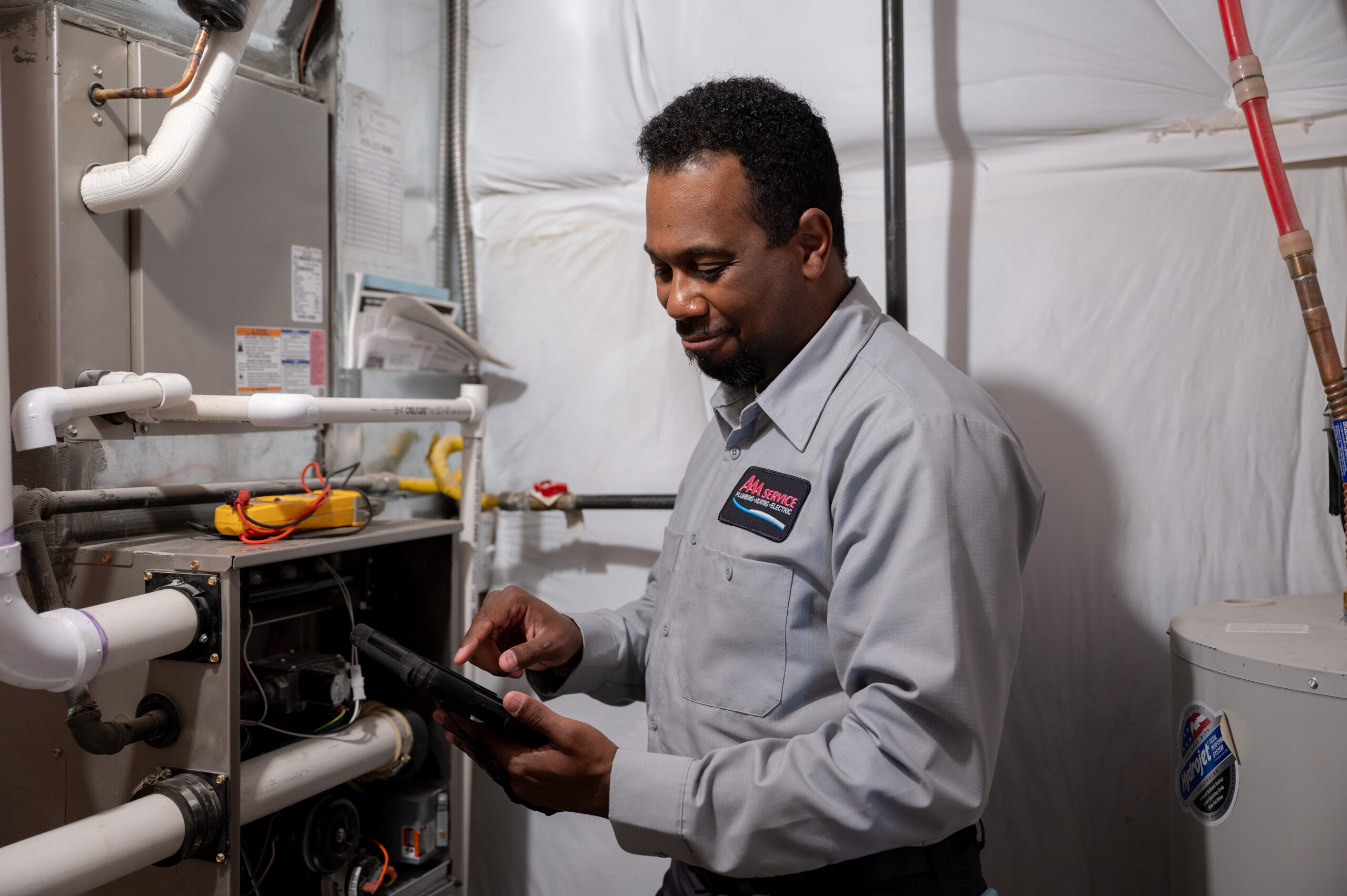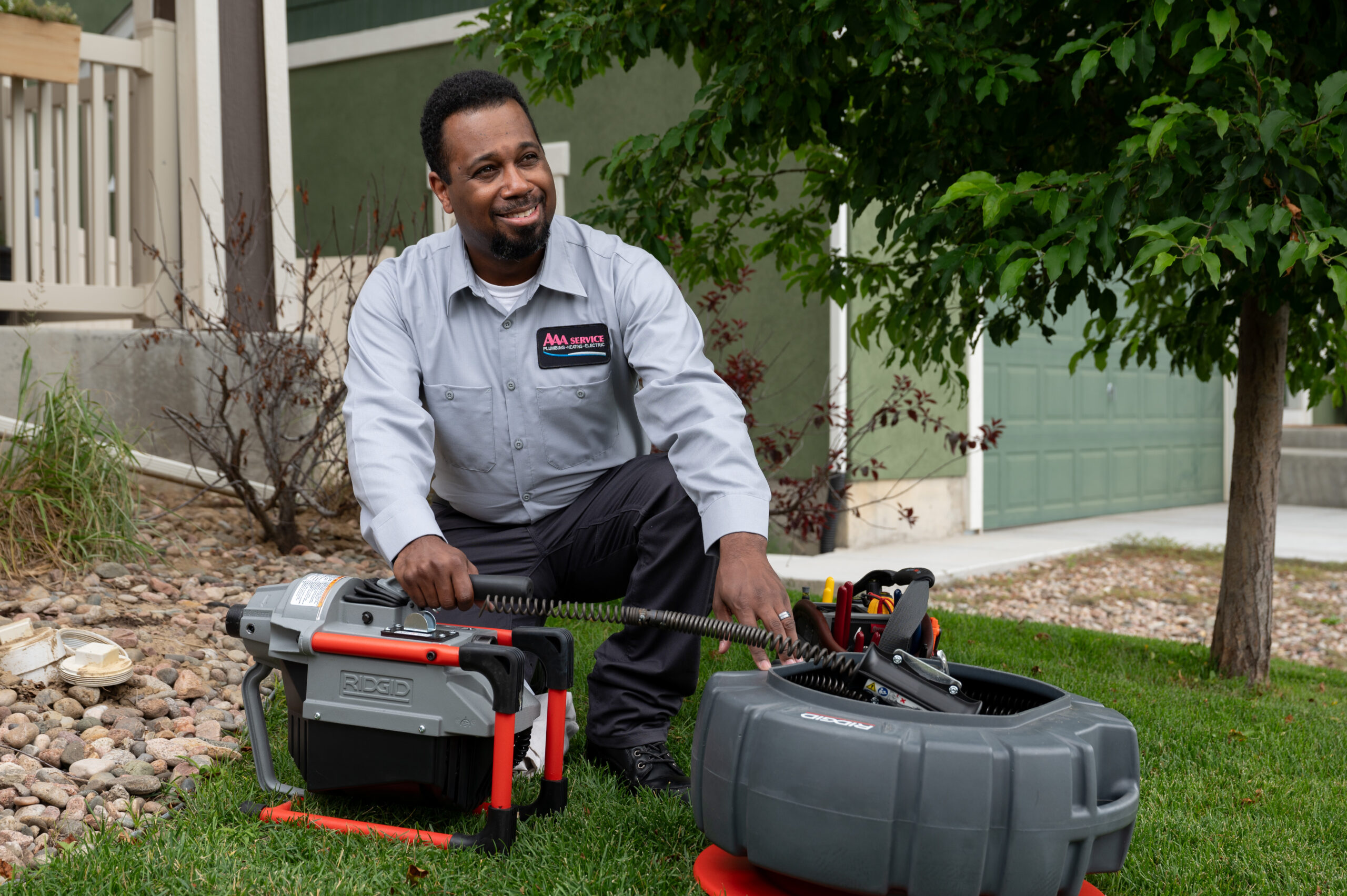As we enter the chillier months of the year, our furnace works tirelessly to keep us warm and comfortable in our homes. This essential appliance plays a crucial role in keeping us snug and cozy, but have you ever wondered about its lifespan? How long can you count on your furnace to faithfully deliver warmth before it needs to be replaced?
AAA Service Plumbing, Heating & Electric will be sharing everything you need to know about your furnace’s lifespan and what you can do to prolong its life. We will also be explaining the telltale signs that your trusted heating companion might be reaching the end of its service. Keep reading to learn about the maintenance tips that can help keep you warm this winter!
What is the Average Lifespan of a Furnace?
The average lifespan of a furnace typically ranges between 15 to 20 years. However, the actual longevity of a furnace can be influenced by various factors, including the type of furnace, the quality of its installation, how well it has been maintained, and the frequency of usage.
Type of Furnace
Different types of furnaces, such as gas, electric, or oil, may have varying lifespans. Gas furnaces, for example, often have a lifespan of around 15 to 20 years, while electric furnaces may last slightly longer.
Quality of Installation
Proper installation is crucial for the optimal performance and longevity of a furnace. A well-installed furnace is more likely to operate efficiently and last longer than one that has been installed improperly.
Maintenance
Regular maintenance is key to extending the life of a furnace. Routine inspections, filter replacements, and addressing any issues promptly can help prevent wear and tear, ensuring that the furnace operates smoothly over the years.
Frequency of Usage
The more frequently a furnace is used, especially in colder climates, the more strain it undergoes. Furnaces that are used intensively may experience more wear and may have a shorter lifespan compared to those used more sparingly.
How to Prolong the Lifespan of Your Furnace
Prolonging the lifespan of your furnace requires regular maintenance, mindful operation, and attention to potential issues. Here are some tips to help extend the life of your furnace:
- Regular Air Filter Replacement: Change the air filters every 1-3 months to ensure optimal airflow and reduce strain on the furnace.
- Annual Professional Inspection: Arrange for a yearly inspection by a qualified HVAC technician to identify and address potential issues before they become significant problems.
- Mindful Thermostat Management: Set your thermostat to a consistent temperature to avoid frequent adjustments, reducing the workload on the furnace. Consider using a programmable thermostat to automate temperature adjustments based on your schedule.
- Promptly Address Issues: Act promptly if you notice unusual noises or odors, as they may indicate potential problems. Regularly inspect your furnace for signs of wear, such as corrosion or cracks, and address any issues immediately.
Signs It’s Time for a New Furnace
If you notice any combination of the following signs, it’s advisable to consult with a qualified HVAC professional. They can assess the condition of your furnace and provide guidance on whether repair or replacement is the best course of action for your specific situation:
- Age of the Furnace: If your furnace is approaching or has surpassed its expected lifespan (typically 15-20 years), it may be more cost-effective to invest in a new, energy-efficient model.
- Frequent Repairs: If you find yourself frequently calling for repairs, especially if the cost of repairs is becoming comparable to or exceeding the value of a new furnace, it might be time to consider a replacement.
- Increased Energy Bills: As furnaces age, they can become less efficient, leading to increased energy consumption and higher utility bills. If you notice a significant and unexplained rise in your heating costs, it could be a sign that your furnace is losing efficiency.
- Uneven Heating: If you experience uneven heating throughout your home or notice that some rooms are consistently colder than others, your furnace may no longer be distributing heat effectively.
- Noises and Strange Odors: Unusual noises such as banging, rattling, or popping, as well as strange odors like mustiness or burning, can indicate mechanical problems. If these issues persist despite repairs, it may be time for a new furnace.
- Visible Signs of Wear: If you observe visible signs of wear, such as rust, corrosion, or cracks in the furnace, it’s a clear indication that the system is deteriorating and may need replacement.
Furnace Services in the Denver Metro Area
When it comes to ensuring the longevity and efficiency of your furnace in the Denver Metro area, look no further than AAA Service Plumbing, Heating & Electric. Whether it’s time for a furnace replacement, regular maintenance, or addressing signs of wear and tear, our dedicated team is ready to provide reliable and efficient solutions. Contact us today for unparalleled service and peace of mind in every season.








